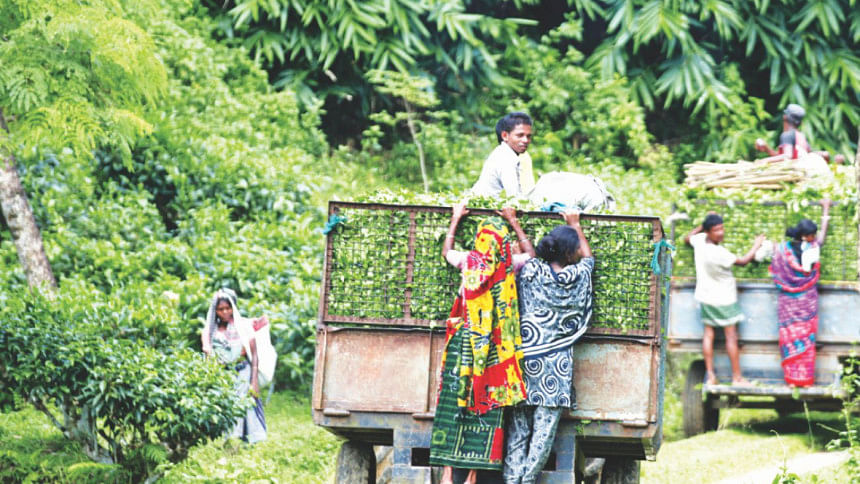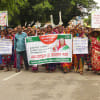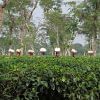Tea Garden Workers: Losing links to the roots

After decades of discrimination, the communities of tea plantation workers in Sylhet region are on the verge of losing their native languages and traditions.
The majority of workers in Sylhet, Habiganj and Moulvibazar districts are descendants of people who were brought to the plantations from different parts of India by the British colonists about 150 years ago, according to the Society for Environment and Human Development (SEHD).
Disconnected from their ancestors’ land, many have lost touch with their roots and cannot remember their history or their language.
“As a child, I had learnt a couple of words from my paternal grandfather, but I have forgotten those due to lack of practice,” said 45-year-old Lakhan Tanti, a worker at Amu tea estate in Habiganj’s Chunarughat.
Lakhan, who went to a local primary school, has been using Bangla since childhood.
Another Tanti community member, Sanjoy Tanti, 30, a resident of Holichhara tea estate in Moulvibazar’s Kulaura, said, “We have even forgotten most of our traditional songs, rituals, cuisines and costumes.”
Although the Tantis are mostly Hindus, they used to have their own rituals, he said, adding that his community people had forgotten them and observed the worship rituals of local Hindus.
The SEHD in 2016 identified 80 ethnic communities in 156 tea estates in Sylhet, Habiganj, Moulvibazar, Chattogram and Rangamati.
According to its study, four distinct groups of Tantis, speaking Telegu, Jangli (a form of Bangla), Sadri and Oriya, were brought from the Indian states of Andhra Pradesh, West Bengal, Jharkhand and Orissa, respectively.
The cultural affairs ministry on March 23 published what it called a list of Bangladesh’s small tribal communities.
The Tantis were not recognised as a community on that list.
The United Nations, estimating that an indigenous language disappears every 2 weeks, has dedicated this year’s International Day of the World’s Indigenous Peoples on August 9 to indigenous peoples’ languages and marked 2019 as the International Year of Indigenous Languages.
Yet, the seniors of the tea worker communities of Sylhet are struggling to keep their native language and tradition alive.
Septuagenarian Veronika Kerketa, a retired tea worker of Bormachhara tea garden in Srimangal upazila of Moulvibazar, still remembers her mother tongue, Kharia.
“A couple of us spoke this language, but many had died. Only two or three people now interact in Kharia,” she said, claiming Sadri was the most prevalent tongue in the tea gardens.
Pius Nanuar, 35, of the Kharia community in the area, said, he does not speak or understand Kharia.
“The government published books in Sadri language for pre-primary level. It is not my mother language, but it is easy to read and used widely in our area,” he said.
Sheer poverty also discourages the present generation of tea workers from learning their native languages.
“The British are gone, but our plight has not changed much. With an income of Tk 102 a day, we are on the verge of losing our language and cultural identity,” said Gita Rani Kanu, president of Bangladesh Tea Workers Women Forum. She belongs to the Kanu community, which speaks Deshwali.
“The government recognised 50 communities without mentioning us. Even some indigenous leaders do not acknowledge us,” she said.
AFM Zakaria, head of anthropology at Shahjalal University of Science and Technology, expressed concern about the disappearing cultural identities of the tea workers because of their isolation and status as minority.
“The government will have to protect the small indigenous groups and their cultures. Otherwise, their original identities may disappear,” he said.
Makhon Lal Karmakar, president of Bangladesh Cha Sramik Union central committee and member of the Karmokar community, demanded constitutional recognition of all the communities of the tea estates and establishment of an Indigenous Tea Workers’ Language and Cultural Academy, with an objective to preserve their native languages and cultures.

 For all latest news, follow The Daily Star's Google News channel.
For all latest news, follow The Daily Star's Google News channel. 








Comments